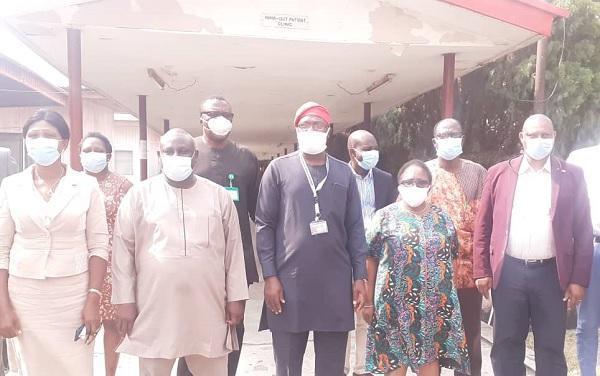
For every mutation of the SARS-CoV-2, there may not be need to panic as new variant develops every day, but it calls for attention when the virus begins to change a patient’s dynamics, Director General, Nigeria Institute of Medical Research(NIMR) Prof. Babatunde Salako, has said.
This is even as the Public Health England recently discovered 38 British cases of a new COVID-19 strain first found in Nigeria.
The health body has marked the mutation, which has been labelled as B1.5.25, as ‘a variant under investigation’, which may be resistant to current vaccines.
The NIMR DG, who described severe strain as variants of concern, noted that they need to be addressed immediately whenever they are discovered.
Fielding questions from journalists during the Circum Vent workshop of principal investigators organised by NIMR recently, Salako stated that although a few variants may not be captured by vaccines, but most vaccines producers have planned their products around the spike protein to arrest majority of strains.
“Mutation happens everyday but it becomes important when it changes the dynamics of patients and cause more deaths, at such, they are called variants of concern.
“It is worthy of note that people have planned their vaccines around the spike protein and if they will be able to take care of any strain at all.
“ There is no doubt that some strains may not be treatable by some vaccines, that was why South African government first stopped the AstraZeneca vaccine because studies have shown that it wasn’t effective, but we don’t have that strain in Nigeria, so we can use the vaccine”, he quipped.
In the wake of the various strains of the virus in the country, the Professor of Nephrology stressed the need for health workers to protect themselves from the disease as they are more vulnerable and can easily spread it to numerous patients.
Salako disclosed that aside from distributing non-invasive ventilators to heads and representatives of health institutions, the event was to further observe how both patients and doctors are faring during the second wave of the virus.
“We have set up a protocol to observe how patients and health workers fare with the non-invasive ventilators.
“You will recall how we got about 140 of these ventilators and gave out 60 of them to Federal Ministry of Health, as well as eight to each teaching hospitals selected for management of severe COVID-19 cases”, he narrated.
A Consultant Oral and Maxillofacial surgeon, Prof. Wasiu Adeyemo, recommended personal responsibility as the progress path out of the disease for everyone saying government alone cannot attain it.
He urged doctors and patients to always adhere to safety protocols whether in the hospital or outside the hospital, as that is the surest protection from the infection.
“The way forward is for all of us to be responsible. Don’t forget that in the first wave, people talked about conspiracy surrounding COVID-19.
“Now, one year down the line, we are talking about the vaccines. It is important to note that it is not just down to the government alone. This is why I earlier said we need massive awareness,” he stated.












